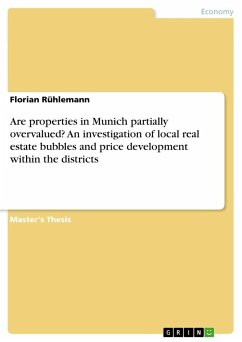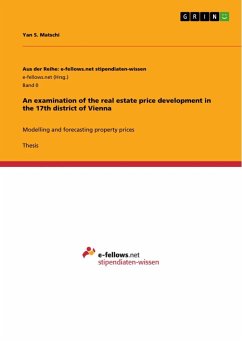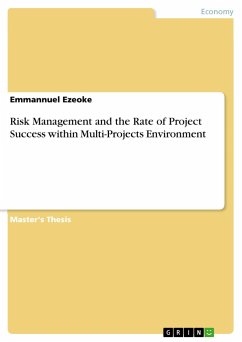Master's Thesis from the year 2014 in the subject Business economics - Miscellaneous, grade: 1,3, University of Regensburg (Lehrstuhl für Immobilienfinanzierung (International Real Estate Business School, University Ratisborn)), language: English, abstract: The burst of the US- real estate bubble in the year 2008 has contributed significantly to the global financial crisis, from which the global economy is still recovering from. In the US, housing prices collapsed after years of increase, which led to credit de-faults and the collapse of the banking system. The subprime crisis, however, was only the highlight of a great new set of consequential price bubbles on international real estate means, which could be seen to swap over to Spain as well as Ireland. This poses the question whether real estate bubbles might exist in Germany. The opinions of the nation are divided. The German city investigated particularly in this article is Munich, since prices are at an all-time high and have been rising continuously during the last decades. To be more specific, this master thesis aims to identify whether there is a local real estate bubble within the German city Munich. This is done by regressing two sets of data and using a stock-flow model in order to determine the relationship between housing prices and explanatory macroeconomic variables: The first set is a time series regression on a whole city perspective within the years 1975 and 2013. The second set is a panel data analysis on district basis within the years 2000 to 2012. Results suggest that in the first set condominium prices are moderately and rowhouse prices are slightly overvalued in Munich, especially in the recent years. The results of the second set illustrate an overvaluation of condominium prices on a slightly lesser level.
Hinweis: Dieser Artikel kann nur an eine deutsche Lieferadresse ausgeliefert werden.
Hinweis: Dieser Artikel kann nur an eine deutsche Lieferadresse ausgeliefert werden.








